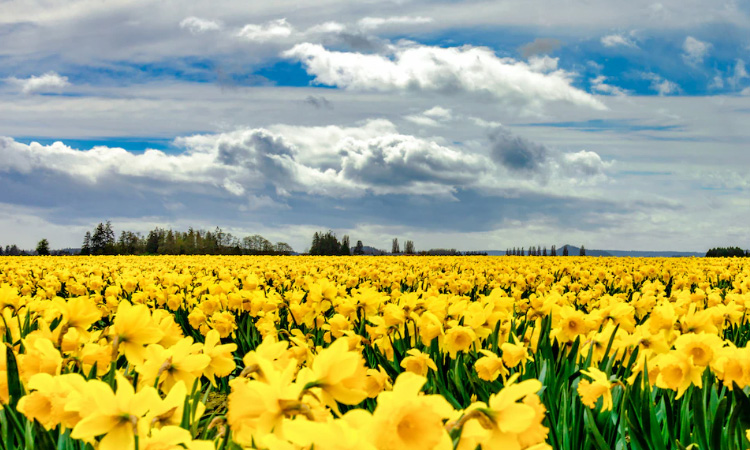In a surprising twist of nature meeting science, high altitude daffodils have emerged as an unlikely hero in the fight against climate change. These unique flowers produce an extract that, when introduced to a cow’s diet, can significantly reduce methane emissions.
- The Methane Problem: Cows, as part of their digestive process, produce methane—a greenhouse gas far more potent than carbon dioxide. With millions of cows worldwide, this methane production contributes substantially to global warming.
- Daffodils to the Rescue: High altitude daffodils, which thrive in mountainous regions, contain a special extract. Recent studies have shown that when this extract is fed to cows, there’s a noticeable reduction in the methane they produce.
Why is this Significant?
- Combatting Climate Change: Reducing methane emissions is crucial in the global effort to combat climate change. Even small reductions, when scaled up globally, can have a significant impact.
- Natural Solution: Instead of relying on chemicals or complex technologies, this solution harnesses the power of nature, ensuring it’s sustainable and eco-friendly.
- Economic Benefits: If farmers can grow these daffodils or access the extract affordably, it could lead to cost savings in the long run, as there might be potential benefits to cow health and milk production.
The Way Forward:
While the discovery is promising, more research is needed to understand the long-term effects and benefits fully. How much extract should be fed to the cows? Are there any side effects? How can it be produced at scale? These are questions that scientists are eager to answer.
Nature often holds the answers to our most pressing challenges. The high-altitude daffodils and their potential to reduce methane emissions from cows is a testament to this fact. As we continue to seek solutions to combat climate change, it’s essential to look around us—sometimes, the answers are blooming right in front of us.
Next On Your Reading List:


